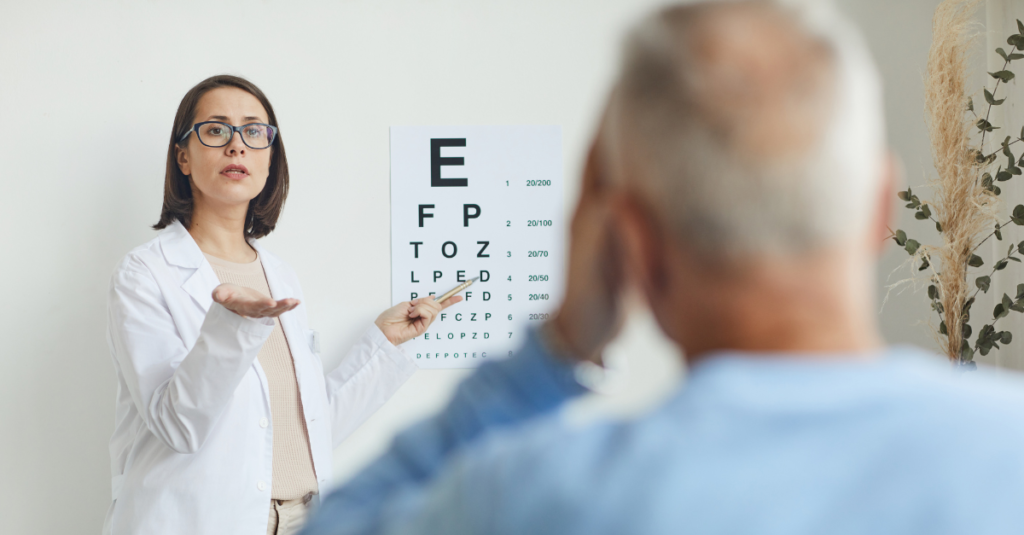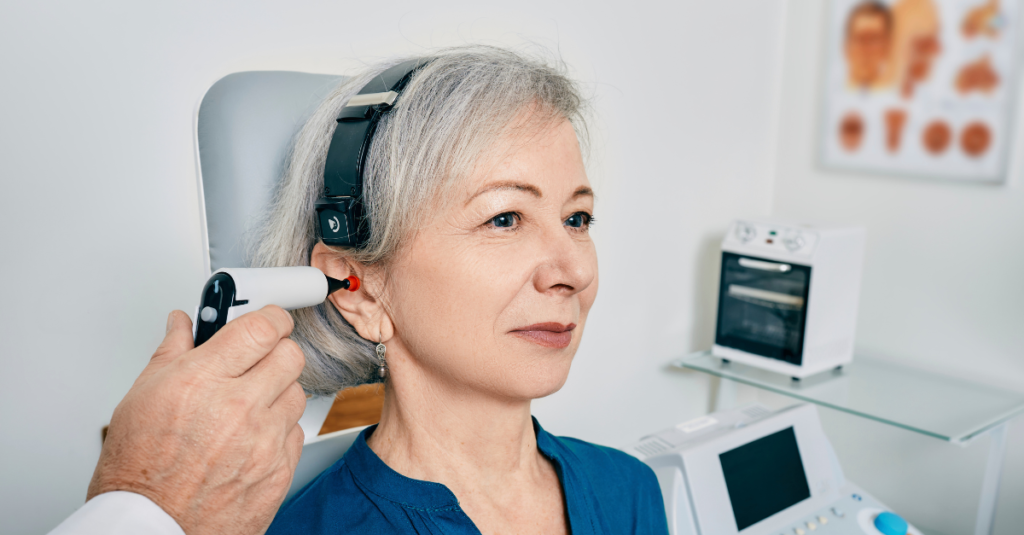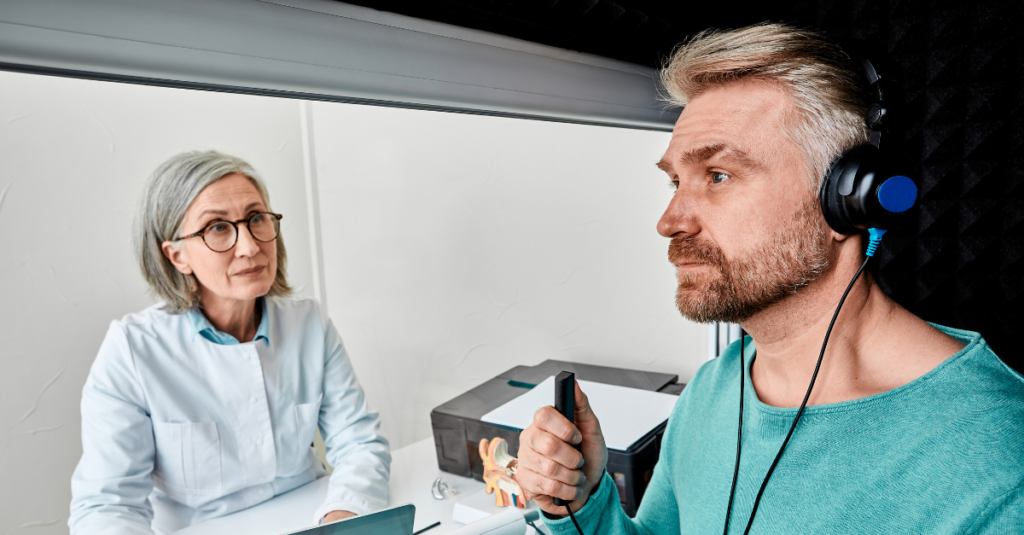As we age, our bodies undergo many changes, and two of the most noticeable involve our vision and hearing. These gradual declines can have a significant impact on daily life, safety, and overall well-being. However, regular vision and hearing tests are often overlooked as part of preventive care for older adults. In this article, we’ll explore why these tests are essential and how they contribute to maintaining quality of life and independence in senior years.
The Aging Process and Sensory Decline

Aging naturally affects our sensory abilities, particularly vision and hearing. While these changes may be gradual, they can become severe if not addressed through regular testing and early intervention.
Vision Changes in Older Adults
As we grow older, our eyes undergo several changes. Common age-related vision issues include:
- Presbyopia (difficulty seeing close objects).
- Cataracts (clouding of the eye’s lens).
- Glaucoma (damage to the optic nerve due to pressure).
- Macular Degeneration (loss of central vision).
These conditions can make everyday tasks like reading, driving, and even recognizing faces challenging, leading to frustration and reduced independence.
Hearing Loss in Older Adults
Age-related hearing loss, also known as presbycusis, is a common condition affecting many older adults. Over time, the ability to hear high-pitched sounds diminishes, and background noise can make conversations difficult to follow.
Hearing loss impacts:
- Communication: Difficulty understanding speech can lead to misunderstandings and social withdrawal.
- Cognitive Health: Research has linked untreated hearing loss to cognitive decline and an increased risk of dementia.
Link Between Sensory Decline and Other Health Issues
The decline in vision and hearing doesn’t just affect the senses; it can also lead to other health issues, including:
- Increased Risk of Accidents: Poor vision and hearing can increase the likelihood of falls, accidents, and injuries.
- Mental Health Concerns: Isolation due to hearing loss or vision impairment can lead to feelings of loneliness, depression, and anxiety.
Importance of Regular Vision Tests

Maintaining good vision is crucial for staying independent and active in older age. Regular eye exams help ensure that age-related changes are detected and treated early.
Early Detection of Vision Problems
Routine vision tests can identify problems like cataracts, glaucoma, and macular degeneration before they severely affect your sight. Early detection allows for timely treatment, which can prevent vision loss and maintain your quality of life.
- Cataracts can often be treated with surgery, restoring clear vision.
- Glaucoma and macular degeneration can be managed with medication or other treatments if caught early.
Vision Health and Quality of Life
Good vision is essential for activities like reading, cooking, and walking. It also plays a role in fall prevention—poor vision is a leading cause of falls in older adults. Regular eye exams and corrective measures, such as glasses or surgery, can help maintain mobility and independence.
Frequency of Vision Tests
Eye doctors typically recommend vision tests every 1-2 years for adults over 60, although some may require more frequent exams based on individual risk factors. If you notice changes in your vision, it’s important to seek an evaluation immediately.
Importance of Regular Hearing Tests

Just as with vision, addressing hearing loss early can prevent long-term complications. Hearing tests are simple and can lead to significant improvements in daily life.
Early Detection of Hearing Loss
Hearing loss often progresses slowly, so it may go unnoticed until communication becomes a challenge. Regular hearing tests can detect early signs of hearing decline, allowing for corrective actions such as:
- Hearing aids or assistive devices that enhance hearing.
- Cochlear implants for severe cases of hearing loss.
Corrective measures greatly improve the ability to communicate effectively, reducing frustration and social withdrawal.
Hearing Health and Cognitive Function
Hearing is not just about communication—it also plays a key role in brain health. Studies have shown a clear link between untreated hearing loss and cognitive decline, including dementia. Addressing hearing issues early helps maintain cognitive function and emotional well-being.
Frequency of Hearing Tests
Hearing tests are generally recommended every 1-3 years for older adults. If you notice difficulty hearing conversations, especially in noisy environments, it’s important to get a hearing test sooner.
The Role of Vision and Hearing in Overall Health and Safety

Both vision and hearing are crucial to maintaining health and safety, especially in older age.
Impact on Balance and Coordination
Poor vision and hearing contribute to problems with balance and coordination, significantly increasing the risk of falls. Even slight impairments can affect spatial awareness, making it harder to move confidently in your surroundings.
Driving Safety
Clear vision and hearing are essential for safe driving. Many older adults continue driving into their senior years, but sensory declines can affect their ability to react quickly to hazards, read signs, or hear sirens and honking. Regular testing ensures that your senses are sharp enough to meet the demands of the road.
- Legal Requirements: Some jurisdictions require seniors to pass vision and hearing tests to maintain their driver’s license, emphasizing the importance of regular screenings.
Social Interaction and Mental Health
Sensory impairments often lead to social isolation, especially when hearing problems make conversations difficult. Social isolation is a known risk factor for mental health issues like depression and anxiety. By keeping your vision and hearing sharp, you can stay engaged with friends, family, and community activities, protecting both your physical and mental health.
Overcoming Barriers to Regular Testing

Despite the clear benefits, many older adults hesitate to seek regular vision and hearing tests. Common barriers include stigma, cost, and access to care.
Addressing Stigma and Misconceptions
Many seniors avoid vision and hearing tests due to the stigma of needing glasses, hearing aids, or other corrective devices. It’s important to remember that using these tools is a proactive step toward maintaining independence and improving quality of life.
Improving Access to Vision and Hearing Care
Cost and logistics can also be barriers to regular testing. Some older adults may struggle to afford glasses, hearing aids, or frequent exams, while others may lack access to specialists. However, options like telemedicine and mobile clinics are expanding access to care, making it easier for seniors to get the tests they need.
Regular vision and hearing tests are vital for maintaining overall health and quality of life in older adults. Early detection of problems allows for timely treatment, preventing accidents, cognitive decline, and social isolation.
Key Takeaways:
- Vision Tests: Help catch conditions like cataracts and glaucoma early, improving safety and independence.
- Hearing Tests: Detect hearing loss before it affects communication and cognitive health.
- Overall Health Impact: Regular screenings support balance, safe driving, and mental well-being.
By staying proactive about sensory health, you can preserve your independence, stay socially engaged, and protect your physical and mental well-being as you age. Don’t wait—schedule regular vision and hearing tests as part of your preventive care routine.

